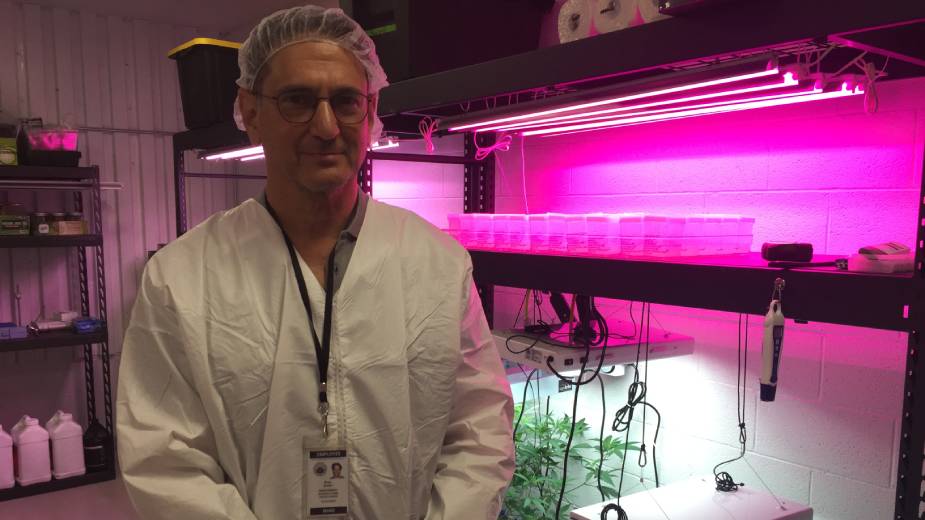Cultivator, Attorney Assess Impact of Issue 2’s Passage
YOUNGSTOWN, Ohio – Passage of a state law legalizing recreational marijuana use for adults represents just the first step in a long process of getting products to market for Ohioans, a leading advocate said.
During Tuesday’s general election, state Issue 2 was approved, with nearly 57% of Ohioans who cast ballots on the measure voting in favor of passage. Several statewide business organizations opposed the issue, including the Ohio Manufacturers Association, the Ohio Chamber of Commerce, the Ohio Farm Bureau and the Ohio Business Roundtable, as well as the Youngstown/Warren Regional Chamber locally.
The state issue passed by a much narrower margin in Mahoning and Trumbull counties, and lost in Columbiana County, also by a tight margin. In Trumbull County, nearly 53% of voters favored approval, and in Mahoning County just shy of 52% did.
In Columbiana County, nearly 52% of voters cast ballots against the initiative.
Passage of Issue 2 “was the beginning,” said Brian Kessler, chairman of Riviera Creek, a medical marijuana cultivator and processor that opened in Youngstown in 2019 after Ohio approved marijuana for medical use in 2016. He said he was looking forward to government officials to get laws up and running and get the operation ready to serve customers in the state.
“There’s been a lot of noise about what was going to happen in this whole experience,” Kessler said. “We’re really appreciative of the fact that we spent a lot of effort trying to communicate to people in the state that our goal is to get safe, legal, tested product in the people’s hands, and it sounds like that resonated.”
Kessler said he has worked in 20-some states. In nearly every situation, people who were getting it in a way that was dangerous were then able to access a product that was “much safer and less harmful for them.” Up to 2 million Ohioans already are consuming marijuana, but there are only 170,000 patients in the medical marijuana program. The rest “are buying marijuana dangerously.”
Tim Jacob, an attorney with Manchester, Newman & Bennett in Youngstown who specializes in labor and employment law, said Wednesday that leading up to Election Day, he received several calls from employers about what would happen if the issue were to pass. By midmorning, he had received another three.
The inquiries largely are coming from employers in sectors where there would be safety-related concerns, such as manufacturing, transportation, steel production, transportation and health care.
Marijuana remains a Schedule 1 prohibited substance under federal law, which “puts it up there with heroin and all kinds of stuff,” though law enforcement often “looks the other way” unless an individual is trying to sell it. Government contractors who are governed by federal law are obligated to maintain a drug-free workplace.
“Generally, it’s not really going to change a lot for employers,” he said. “It really hasn’t affected the employers’ right to drug test to maintain a drug-free environment,” or whether it can forbid use or possession of such substances on the job. It can “anchor an employment decision” based on a positive marijuana test, though some states already forbid employers taking action on employees’ off-duty behavior, and marijuana “lasts a while in the system.”
Because marijuana has been illegal for so long, there is “surprisingly little science” on usage. Now that states are expanding use for medicinal and recreational purposes, “maybe the science will catch up with it,” he said.
On Wednesday, the Ohio Department of Commerce launched a frequently asked questions website for nonmedical cannabis. The department also stated that the Division of Cannabis Control within Commerce has nine months to complete rulemaking and that any amendments to the stature – which can be made by the state Legislature – could affect the time line for rulemaking and licensing.
“You can’t just turn these things on overnight,” Kessler advised. More inventory has to be in place to serve the larger customer base that will have access to the product, and that product has to pass testing.
“We’re going to be working with the state closely to get guidance and direction on what their timing is, what their needs are and, based on the information we get back from when, where and how, we then need to continue to expand our facility, the service and much broader market,” he added.
Pictured at top: Brian Kessler, chairman of Riviera Creek.
Copyright 2024 The Business Journal, Youngstown, Ohio.



